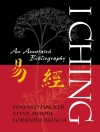This monograph is a new interpretation of Kant’s atemporal conception of the causality of the freedom of the will. The interpretation is based on an analysis of Kant’s primary conception of an action, viz., as a causal consequence of the will. The analysis in turn is based on H. P. Grice’s causal theory of perception and on P. F. Strawson’s modification of the theory. The monograph rejects the customary assumption that Kant’s maxim of an action is a causal determination of the action. It assumes instead that the maxim is definitive of the action, and since its main thesis is that an action for Kant is to be primarily understood as an effect of the will, it concludes that the maxim of an action can only be its logical determination. Kant’s atemporal conception of the causality of free will is confronted not only by contemporary philosophical conceptions of causality, but by Kant’s own complementary theory of causality, in the Second Analogy of Experience. According to this latter conception, causality is a natural relation among physical and psychological objects, and is therefore a temporal relation among them. Faced with this conflict, Kant scholars like Allen W. Wood either reject Kant’s atemporal conception of causality or like Henry E. Allison accept it, but only in an anodyne form. Both camps, however, make the aforementioned assumption that Kant’s maxim of an action is a causal determination of the action. The monograph, rejecting the assumption, belongs to neither camp.
Robert Greenberg
Bounds of Freedom: Kant’s Causal Theory of Action [PDF ebook]
Bounds of Freedom: Kant’s Causal Theory of Action [PDF ebook]
Köp den här e-boken och få 1 till GRATIS!
Språk Engelska ● Formatera PDF ● Sidor 145 ● ISBN 9783110494129 ● Utgivare De Gruyter ● Publicerad 2016 ● Nedladdningsbara 3 gånger ● Valuta EUR ● ID 6296303 ● Kopieringsskydd Adobe DRM
Kräver en DRM-kapabel e-läsare












